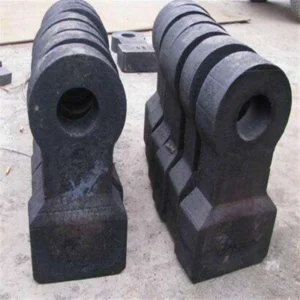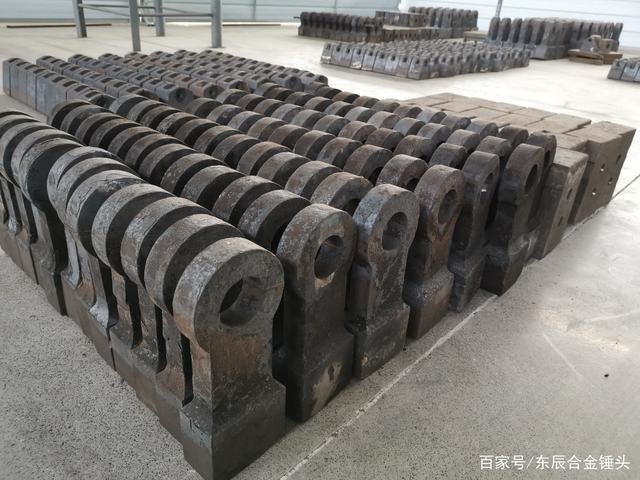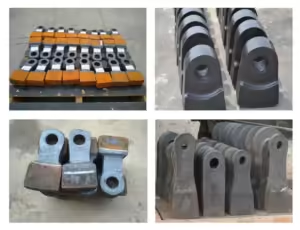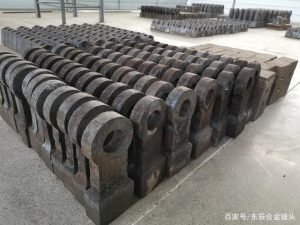1. Understand Your Requirements
Material to be Crushed: The type of material (e.g., limestone, coal, granite) impacts the choice of hammer.
Production Requirements: Consider the production capacity, size reduction ratio, and the specific application.
Operating Environment: Factors like humidity, temperature, and the presence of corrosive elements can influence the choice of hammer material.
2. Choose the Right Material
High Manganese Steel: Good for high-impact conditions.
Alloy Steel: Offers better hardness and wear resistance.
High Chromium Iron: Suitable for abrasive materials.
Tungsten Carbide: Extremely hard and wear-resistant for very abrasive materials.
3. Consider the Manufacturing Process
Casting: Most common method for making crusher hammers. Ensure the manufacturer uses high-quality cast steel.
Forging: Results in stronger and more durable hammers due to the grain structure.
Machining: Precision machining ensures better fit and performance.
4. Check Quality Standards
Certifications: Look for ISO 9001 or other relevant certifications that indicate adherence to quality standards.
Material Testing: Ensure the hammers undergo rigorous testing for hardness, impact resistance, and wear resistance.
5. Research Manufacturers
Reputation: Look for manufacturers with a good reputation in the industry.
Experience: Prefer manufacturers with extensive experience in producing crusher hammers.
Customer Reviews: Read reviews or ask for references from other customers.
6. Inspect Samples
Surface Finish: Check for uniformity and smoothness.
Dimensions: Verify that the dimensions match your crusher’s specifications.
Weight: Ensure the weight is consistent with your crusher’s design requirements.
7. Evaluate the Supplier’s Service
Customization: Check if the supplier can customize the hammers to your specific needs.
Technical Support: Assess the level of technical support and after-sales service provided.
Warranty: Consider the warranty period and terms offered by the supplier.
8. Monitor Performance
Initial Use: Monitor the hammers’ performance closely after installation.
Maintenance Records: Keep detailed records of maintenance and wear to assess the quality over time.
Feedback Loop: Provide feedback to the supplier for any improvements or issues.
By following these steps, you can ensure that you purchase high-quality crusher hammers that meet your operational needs and deliver long-lasting performance.




